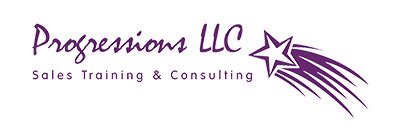Effectively Interview Customers to Score Sales
Do employees just push the product of the month? If so, they’re simply hoping and guessing what people need. Successful sales people know that selling isn’t a “one size fits all” business. You have to treat each customer as a unique individual. How can I help that person? What products or services will benefit him or her? How can I improve his or her financial life?
Effective interviewing skills help employees tailor fit products and build relationships. “An effective interview is where you find out exactly what the customer needs and wants,” explains Lynn Giuliani, president of Progressions, Inc. (Bellingham, WA). “You get to know the person and how you can help them. What is most important to the customer? What is that person’s personal buying motive?”
Fit Real Needs
“Don’t do a spray-and-pray. This is where you just start talking and hope something is a fit,” says Giuliani. Too often employees get a clue from the customer and get excited with the opportunity and just start blurting out product info. For example, a customer will say I’d like some information on checking accounts. The employee then does a spiel on all the different plans and features.
But the employee doesn’t make any effort to discover anything about the person such as why he or she chose your financial institution or what kind of checking account the customer needs and wants. “If you jump the gun and start talking about your product or service, you’ve essentially spilled your candy. You miss the opportunity to connect with the customer,” Giuliani says. “Effective sales people consult with customers.” They use interviewing skills to probe and then tailor fit needs. “An interview is the magic moment. It shows you care about the person,” Giuliani says. “When you find out exactly what is important to the customer, then you look like a professional. You give the person exactly what he or she needs – not just all the info you have at your disposal.” Anytime you pitch a product, customers want to know What’s in it for me? An effective interview provides this information. It helps you identify what the customer is seeking. Meeting those needs ultimately drives sales and satisfaction.
Winning Strategies
For more effective interviews, Giuliani recommends employees:
Focus on the customer. Give the person your undivided attention.
Have a customer-friendly attitude. Put the customer at ease. Be friendly, polite, and patient. Take a sincere interest in the customer. Use positive body language. Make eye contact. Lean forward towards the person. “People open up more when you’re friendly,” notes Giuliani.
Personalize your approach. Create an environment that fits the customer. For example, how much time does the person have available? If you’re dealing with a senior, you may need to slow down.
Encourage a two-way conversation. Don’t do a spiel. “An effective interview is an even dialogue exchange between the customer and employee. It’s never a one-sided conversation,” Giuliani says. “Treat it like a tennis match. You serve the ball and that’s some dialogue. Then the customer responds back to you.”
Don’t put words in customers’ mouths. Ask – don’t tell people what they need or want. “Questions become one of your most powerful tools in developing a relationship and properly servicing the customer,” points out Giuliani.
Ask open-ended questions. Closed probes stifle rapport and make the customer feel like he or she is being interrogated. Guide people to providing expansive responses instead of one-word answers. You’ll discover more about their needs and wants. Asking open-ended questions also gives you clues for cross selling.
Find out what’s important to the customer. “If you haven’t asked three questions of personal interest about the customer, you’re not ready to present your product,” says Giuliani. She offers these examples:
Tell me a little bit about you?
What brought you in our office today?
What is important to you in a banking relationship?
Do you have any plans in the next six months where XYZ Bank might be able to assist you?
If you had a wish list for your financial institution, what would be on it?
Listen carefully. “The best questions in the world are lost if you don’t listen,” says Giuliani. Pay attention to the customer’s words and body language.
Take notes. Ask the customer Do you mind if I take a few notes? I would like to serve you better. And the notes will help me follow up with you.
Avoid banking jargon. Use simple, easy to understand language. Don’t use technical terms or acronyms like APR and OD unless you clearly explain them.
Keep your desk neat. It emphasizes your professionalism. You can take better notes and find information you need. Plus customers are more confident you won’t lose any data they provide.
Always Follow Up
When you finish the interview, ask the customer How would you like to be contacted? “Customers are impressed. They think Wow, this is a different kind of institution. These people really care about me,” says Giuliani.
Giuliani encourages her clients to profile customers. She recommends keeping a page of information about each person in a binder or on the computer. Examples are personal interests, background, accounts they have with you and other institutions, etc. “Follow up separates the amateurs from the professionals. And a profiling form helps you with follow up,” explains Giuliani. She suggests:
Send a hand-written personal thank you card when a customer opens an account.
Phone the customer somewhere between 5 and 10 days after an account is opened. Find out if the person has any questions, problems, or additional needs.
Contact the customer 3 to 4 times a calendar year. Thank the person for his or her banking relationship. Ask if he or she has any questions or problems. Offer to send any new product information.
